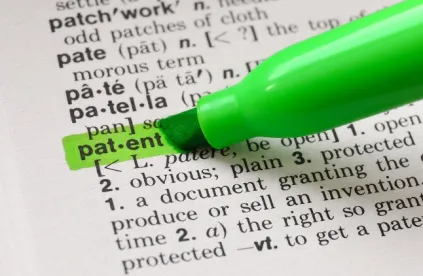The Institute of Electrical and Electronics Engineers, Inc. (“IEEE”) is the well-known engineering standards organization often cited in patent litigations to inform issues ranging from claim construction to the state of the art. A recent decision from the District of New Hampshire gives an inside look at how the IEEE’s standards are made, and perhaps provides a cautionary tale about escalating disagreements in a typically-collaborative setting.
This particular case involved the IEEE’s efforts to establish a technical standard for “Test Access Architecture for Three-Dimensional Stacked Integrated Circuits.” The individuals tasked with creating the standard—all volunteers (some repeat volunteers)—were put into distinct “Tiger Teams” who were assigned certain sub-parts of the overall standard. The dispute giving rise to the court’s opinion arose between the individuals in one of those groups, “Tiger Team 1” – in particular, the group’s draftsman, Plaintiff Intellitech, Inc.’s CEO Christopher Clark, and another member, Eric Jan Marinissen.
The issue began when Clark placed an Intellitech watermark on the working draft of the standard. During a “Tiger Team 1” meeting, Marinissen “raised concerns” about the watermark and asked Clark to remove it, objecting that “some of the information that gets added to this document is from the working group discussion and it is not appropriate to have the [I]ntellitech watermark.” Clark refused to remove it “until the team ‘vote[d] on something for P1838 [i.e., the standard] and [made] it part of the standard . . . .” Just before what was supposed to be the group’s final vote on the draft, Clark provided a Microsoft Word version to Marinissen so he could make revisions directly. Along with his proposed revisions, Marinissen replaced the Intellitech watermark with the working group’s watermark. Then, the dispute escalated.
Clark halted further meetings and subsequently sent a cease and desist letter to the IEEE General Counsel and Chief Compliance Officer complaining that “Marinissen ‘conducted willful infringement’” and “sought out the original document under false pretenses and claimed the copyrighted work for his own working group’s use.” The IEEE, for its part, removed copies of the working draft from its server and disbanded Tiger Team 1. About a year later, however, Marinissen established Tiger Team 4 to “produce a fresh write-up of the various standard clauses, thereby avoiding further copyright claims from [Clark].” Tiger Team 4 later submitted a final version of the standard that attempted to “specifically . . . avoid any actual or apparent overlap in language with” the version to which Clark contributed.
Clark (as Intellitech) then filed suit, claiming that the IEEE “copied, used and modified” the document bearing Intellitech’s watermark, and moved for summary judgment seeking to establish IEEE’s liability for copyright infringement. At summary judgment, the IEEE countered that it “had (and has) a non-exclusive, irrevocable and perpetual license to use [the working draft] in connection with the P1838 working group’s efforts to develop a new technical standard.” Specifically, “the totality of the parties’ conduct compels the conclusion that – to the extent Intellitech does own an exclusive copyright to the [working draft] – Intellitech granted IEEE a nonexclusive license to use the language of the [draft] for the purpose of developing and drafting a P1838 standard.”
Judge McAuliffe of the District of New Hampshire denied Intellitech’s motion for summary judgment, apparently siding with the IEEE. The court noted that the doctrine of implied license put forth by the IEEE is highly fact-specific, thus precluding summary judgment. However, according to the court, the facts in this case “seem[] to support rather than belie” the conclusion that the IEEE had one. The court found that the group “all volunteer[ed] their time and expertise in a collaborative effort to develop generally accepted technical standards to benefit the field and those who are involved in it” (emphasis in original). Indeed, “Clark, as an IEEE volunteer, was not compelled to participate in the P1838 working group; he chose to do so, fully understanding the nature of the collaborative effort aimed at developing an IEEE technical standard . . . .” The court ultimately found that “the current factual record is plainly insufficient to support summary judgment on liability in favor of Intellitech, and, if anything, probably leans against it.”
However, Intellitech did not leave empty handed. The court also denied the IEEE’s motion for summary judgment, which sought to preclude Intellitech from recovering statutory damages, attorneys’ fees, and injunctive relief based on 17 U.S.C. § 412(1), which prohibits such damages for “any infringement of a copyright in an unpublished work commenced before the effective date of its registration . . . .” IEEE argued that “infringement began, if at all, before Intellitech’s registration of the” draft—when Marinissen removed the Intellitech watermark from it in 2014. This, according to the court, was a factual dispute that prevented summary judgment – “the date of IEEE’s first alleged infringement is plainly disputed, may turn on whether an implied license was given, and whether it was irrevocable.”
We will keep you posted as this dispute between former collaborators progresses. The case is Intellitech Corp. v. The Institute of Electrical and Electronics Engineers, Inc., 16-cv-0009-SM, pending in the District of New Hampshire. A copy of the slip opinion can be found here.



 />i
/>i

